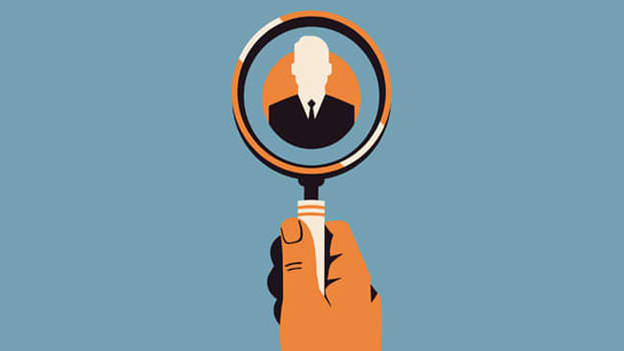What’s working for HR in 2021 & what to look forward to in 2022

2021 has been a pivotal year for the HR community. As the role of people in organisations rose during the pandemic, HR became a make-or-break function for the business world. 2021 also saw HR gaining more space in different business functions--moving from just managing performance or hiring to a more central role in how organisations lead or succeed in the new world. Looking ahead in the coming year, we can only see the responsibilities of HR becoming more critical. Here are some key things that would fall under the umbrella of HR 2022.
Ensuring the mental well-being of the people
An overwhelming sense of uncertainty about what the future holds or how to keep an organisation running is a major issue. We are all more or less affected by uncertainty. In the face of job losses, pay cuts, and personal anxieties, employees are affected mentally, not knowing what the future holds for them, and the HR teams are struggling to put everything into alignment. HR and business leaders need to collaborate effectively to address this critical agenda item on their menu- the wellbeing of their people. Empathy has emerged as a key value and emotional quotient a key requirement for HR leaders.
In the face of the 3Cs of Crisis, Covid and Chaos, the HR world has stepped up and should continue to step up for Compassion, Communication, and Community.
Leveraging technology and social media
In this digitally adept world, HR professionals combine their experience with the expertise of technology professionals to create better HR tech. Professionals have to use data to their advantage. At a time when applications like Microsoft meetings, Zoom communications, and Slack are becoming an inseparable part of professional work, ensuring that the entire workforce is digitally ready rests with HR. With the digital transformation, we see that being on social media is paramount. As social media is increasingly used for background checks, HR professionals have to be savvy and responsible social media users and work on building digital connections and dexterity.
Handling the Great Resignation
The talent war ignited by COVID-19 has been burning more aggressively in the great resignation. As we look ahead to 2022, HR leaders will have the challenge of attracting and retaining talent which requires keeping the HR costs under control and the channels of communication open between stakeholders.
Businesses must establish and maintain an environment that attracts, keeps and nurtures the best employees possible. This includes the creation of an organization's core values and mission statement, the maintenance of an safe workplace, and the development of transparent, logical, and consistent operational rules and procedures. Workplace ethics and values; policies that interpret and implement those values; and the physical environment in which people work are the three main characteristics of the workplace.
More than ever, employees want a culture of openness and shared information. They want to know where the company is going and what it will look like in the future. How is the company doing financially? Where does it stand in the marketplace? What are its values? And HR plays a huge role in determining these answers.
Reskilling and multi skilling employees
Another key challenge for HR professionals is to reskill and multiskill people in a rapidly changing company environment.
The future is all about multiskilling. – pandemic or no pandemic, one has to learn to be able to survive in the era of hyper competitiveness by bringing in more and more onto the table. In addition, social, soft, and emotional abilities will play an important part in the development of workers. These programmes will assist individuals in coping with stress, developing a good mindset, and maintaining productivity while working from home. HR leaders will need to provide more avenues for employees to acquire new skills, let go of obsolete skills, and reskill.
L&D is no longer a ‘good to have’, it is a ‘must have’ for organisations looking to lead rather than spend time in firefighting.
Amplifying DEI efforts
Inclusion, equity, and diversity are more than just buzzwords; they are the future of work. Employees today want a workplace where they are respected, appreciated, and heard, and they are demanding it. Leaders, especially HR professionals, have the power to create one.
A shift toward a more inclusive recruiting process that prioritises diversity and inclusion has long been in the works. Two things have contributed to this transformation. Organizations may now more easily recruit individuals outside of urban areas, women from traditional homes, those with particular talents or those with family constraints, among a host of other underrepresented groups, thanks to remote working. In the second, there is a growing awareness of social inequities, which is followed by a growing desire to improve the world. Because of the pandemic, organisations are more aware of their capacity to do better, and the pandemic provides an opportunity for them to do so.
Managing change
In the twenty-first century, HR has the additional problem of change management. Managing change is becoming more challenging for large firms as they adopt more and more global practises. As a result of the current state of industrial development, a significant amount of "change" is required across all facets of business. Nevertheless, there is opposition from a variety of sources. The HR team has a monumental task of overcoming the resistance of the organization's stakeholders and implementing new organisational reforms. In today's VUCA world, change is unavoidable. Globalization, changes in the financial and regulatory framework, more work and less money, better working and learning conditions, and the rate of change are all putting pressure on organisations to adapt. HR has to turn resistance to resilience and build a culture of learning and adapting for all.

















